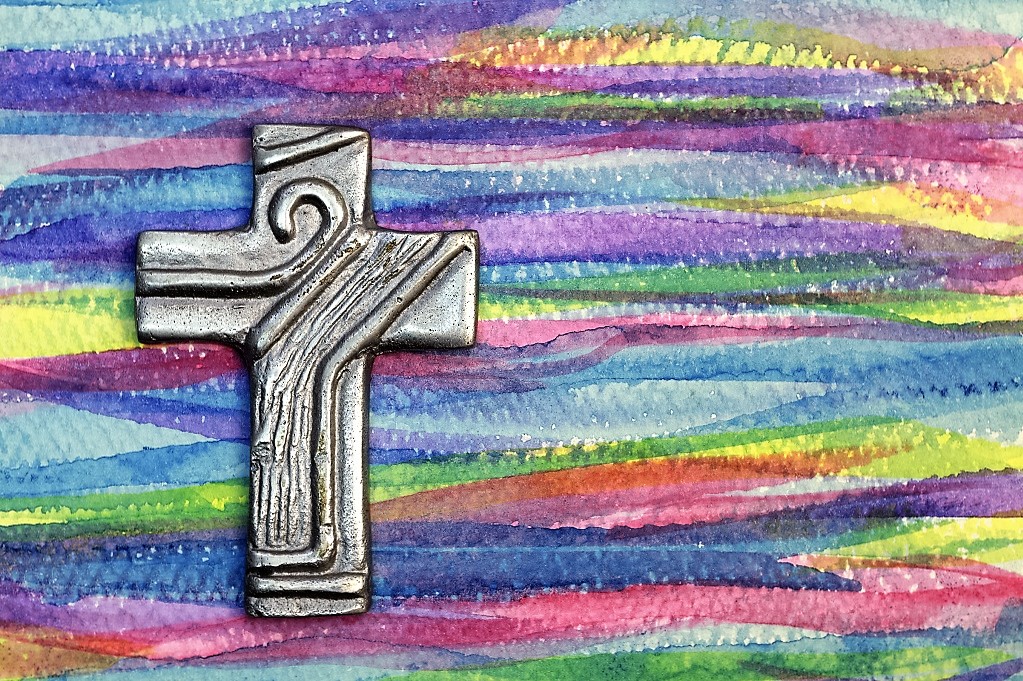The word “covenant” is familiar to Catholics. It is part of the Eucharistic Prayer at every Mass. But what exactly is a covenant?
First, let’s look at a similar word and idea: “contract.” That’s a common enough concept. We sign and enter into contracts all the time. A contract is basically an exchange of goods and services. You make widgets. I call you and order 3,000 widgets to be delivered. You fax over a contract. The contract says you will make and deliver those widgets to me by a certain date. My part of the contract is that I will pay you for making and delivering the widgets. I sign the contract and fax it back. Deal done.
A lot of people confuse “contract” with “covenant.” Yet, they are vastly different. For instance, there are such things as “cohabitation agreements”. (You can see a sample here.) It states that a couple is willing to live together, but only under certain circumstances. Kevin will pay X amount for rent and Ashley will pay X amount. They decide legally who is responsible for what. They may even decide to note that Kevin will take care of the garage and any maintenance, while Ashley is responsible for cooking meals and cleaning up the kitchen.
Not very…romantic, huh? It sounds like a business arrangement. Well, it is. It’s a contract. It’s the exchange of goods and services between two people. And it’s not at all what God has in mind for a man and a woman who join together.
Now, let’s look at “covenant.” The word gets used quite a bit in Scripture. For instance, God establishes a covenant with Noah in Genesis 6. God commanded Noah to build an ark, and to bring aboard that ark every kind of animal and Noah’s family. Noah agreed, and did what God asked. God’s promise to Noah was:
I am now establishing my covenant with you and your descendants after you and with every living creature that was with you: the birds, the tame animals, and all the wild animals that were with you—all that came out of the ark.
I will establish my covenant with you, that never again shall all creatures be destroyed by the waters of a flood; there shall not be another flood to devastate the earth.
God said: This is the sign of the covenant that I am making between me and you and every living creature with you for all ages to come:
I set my bow in the clouds to serve as a sign of the covenant between me and the earth. (Gen. 9:13)
Another important covenant is the one God makes with Abram. Abram (to whom God gave the Abraham.) Abraham was a great leader of his people, but more importantly he was faithful to God. And God made a promise to Abraham:
For my part, here is my covenant with you: you are to become the father of a multitude of nations.
No longer will you be called Abram; your name will be Abraham,for I am making you the father of a multitude of nations.
I will make you exceedingly fertile; I will make nations of you; kings will stem from you.
I will maintain my covenant between me and you and your descendants after you throughout the ages as an everlasting covenant, to be your God and the God of your descendants after you.I will give to you and to your descendants after you the land in which you are now residing as aliens, the whole land of Canaan, as a permanent possession; and I will be their God.
God said to Abraham: For your part, you and your descendants after you must keep my covenant throughout the ages.
Thus were born the Jewish people, from whom would descend the 12 tribes of Israel and from whom our Saviour would be born.
You see, a covenant is not a business agreement. It’s not an exchange of goods and services. A covenant is a promise that lasts forever, has an enduring sign (like the rainbow for Noah), and always includes God. Amazing, isn’t it? God has made promises to humanity since we’ve been trudging around this Earth and He has kept every one.
As Catholics, our ears hear that word “covenant” during the Eucharistic Prayer: This cup is the new covenant in my blood, which will be shed for you. Jesus IS the new covenant: He gives us eternal life, and we pick up our crosses and follow him. The bread and the wine which become Christ: Body, Blood, Soul and Divinity are the sign of this covenant.
Now let’s go back to that cohabitation agreement. God does not want a man and woman to enter into a contract. He wants a covenant for them. That’s why Christ established marriage as a sacrament. A man and a woman promise (not who will mow the lawn or who will pay what amount for rent) to honor each other, to accept children from God, to be true during good and challenging times and to love as long as both shall live. And we do this in God’s name. The rings exchanged and blessed are the sign of this covenant.
The idea of covenant, an everlasting promise that includes God, is really the love story God has written for us. It’s an important part of Scripture and therefore our Catholic faith. Catholic theologian Scott Hahn has spent much of his life studying and exploring this, and you can learn a lot from his books and writings.
For today, though, pray about the wonder of God’s promise to you, to each of us as Catholics: we do our very best to follow Him and we will have eternal life with Him. Amen!


